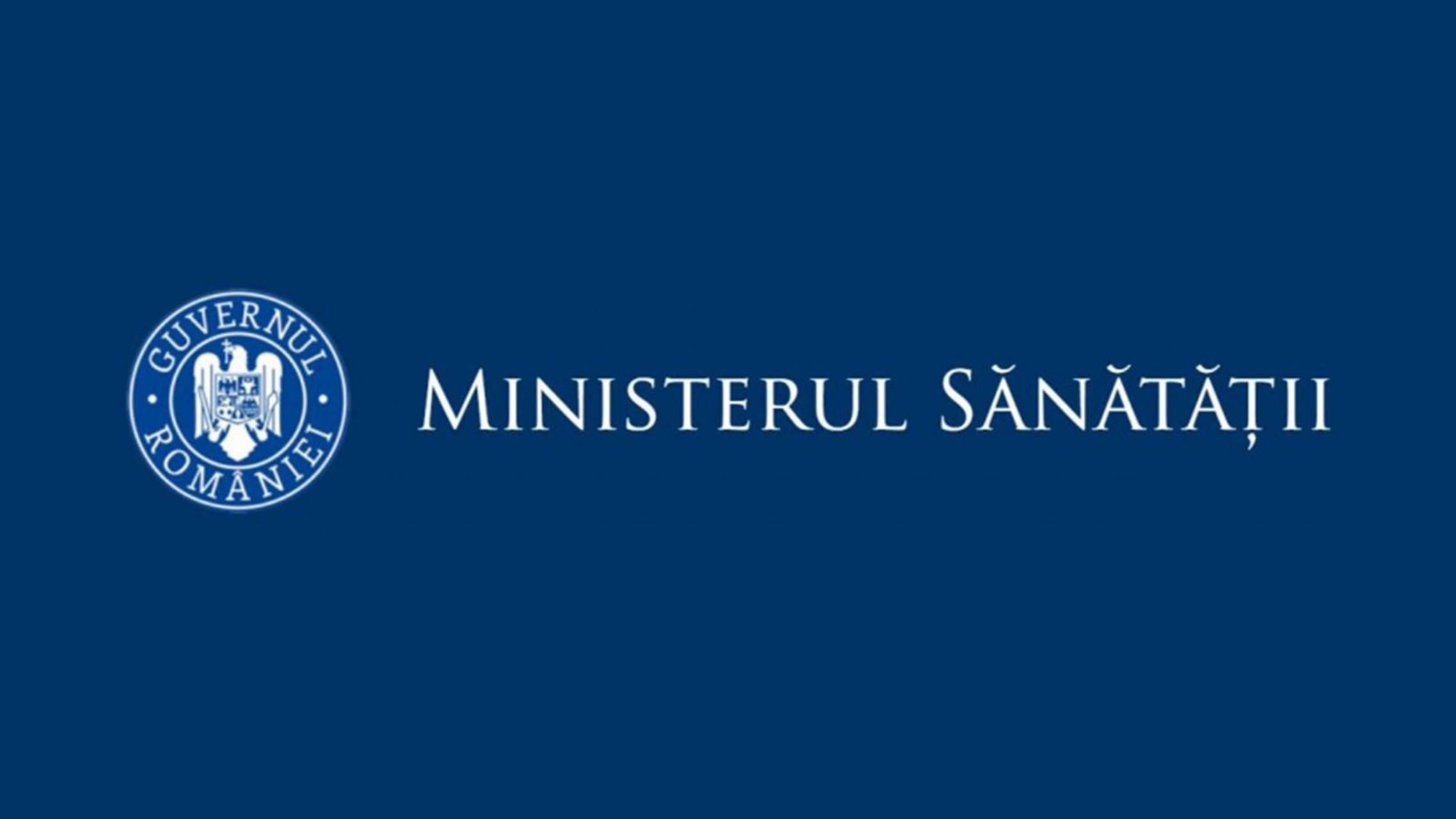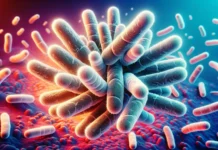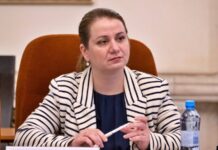The Ministry of Health has announced a series of new rules regarding the treatment of patients infected with the new Coronavirus, and we are talking about important changes for treatment schemes.
"Starting next week, the information flow used in the reporting of data related to the infection with the SARS CoV-2 virus will be changed, by updating the IT platform for data collection.
Considering the new legal provisions according to which family doctors will take over the monitoring of asymptomatic people infected with the new coronavirus, but also to reduce the time in collecting and correlating the data provided by the authorities and institutions involved, as well as reducing the information time of the tested people, it was approved the Order of the Minister of Health for the approval of the information flow used in the reporting of data related to the infection with the SARS CoV-2 virus
"The update of the information flow will reduce the response times of the public health departments and improve the collaboration between them and the infected people or who are part of the epidemiological investigations. The people who have been tested will find out in real time the results of the tests, as well as the decisions issued by the dsp will be automatically transmitted from the computer system, no longer needing to contact the DSP. Collaboration with family doctors will also be facilitated. The measures are taken based on the experience gained during the 8 months of managing the pandemic, but also in accordance with the new legislative provisions", said Nelu Tătaru, Minister of Health
According to the document, the samples transported to the laboratories that carry out the RT-PCR testing will be accompanied by a Form accompanying the collected sample with a code previously issued by the Directorate of Public Health (DSP).
For all collected samples (upon request or according to the methodology), the laboratories will enter in the IT platform all the data from the forms, as well as the test results after each work shift, within a maximum of 24 hours from the receipt of the sample at the laboratory.
The responsibility for the allocation of the samples taken according to the methodology to the laboratories rests with each related DSP. The Executive Director of each DSP ensures the allocation of samples so that all samples are processed within a maximum of 24 hours. For the situation in which the testing capacity in a county is exceeded, the samples will be relocated to other counties by the established regional coordinator.
The test results will be sent automatically from the IT application via SMS and email to the tested persons. If there are no relevant contact details for the tested person, the responsibility for transmitting the result rests with the entity that ordered the collection, respectively the entities where the testing was performed.
The positive analysis reports will be sent automatically by email and text message to the family doctor of the tested persons, to be taken into account.
If a tested person does not have a family doctor, this information is sent to DSP, which is responsible for monitoring the case.
The Directorates of Public Health (DSP) have the obligation to identify and confirm, following the epidemiological investigation, direct contacts of each person tested positive.
All persons identified to be direct contacts of each person with a positive result will be entered into the IT application by the DSP
The quarantine decision will be generated automatically, immediately after completion, from the IT application and will be sent to each person and their family doctor.
In the case of positive patients, the isolation decision will be completed in the IT application by the DSP within a maximum of 24 hours. After completion, it will be sent in electronic format, by email from the computer application, both to the family doctor / the doctor designated by the DSP, and to the patient.
After 14 days from being taken into account as a confirmed person, for people isolated at home or in dedicated locations and monitored by family doctors, respectively doctors assigned by the DSP, in the absence of a change in their status, the patient file will be automatically closed in the application informatics under the status of "healed".
For all hospitalized positive patients, the hospital units have the obligation to fill in the appropriate form (hospital file) from the IT application, within the first 12 hours after admission.
Upon discharge, the hospital unit has the obligation to fill in the patient's status in the hospital file from the IT application within a maximum of 24 hours: cured, transferred or isolated at home.
Hospital units have the obligation to immediately report Covid deaths based on the case definition to DSP
Any laboratory authorized by the DSP, but not included in the National Health Program, which performs RT-PCR tests for SARS-CoV-2, has the obligation to transmit, in the same terms, the analysis bulletins, electronically, to the DSP and INSP, as well as the statistical data requested by the INSP
The processing of personal data is carried out in compliance with the provisions of Regulation (EU) 2016/679 of the European Parliament and of the Council of April 27, 2016 on the protection of natural persons with regard to the processing of personal data and on the free movement of such data and its repeal of Directive 95/46/CE, of Law no. 190/2018 on measures to implement Regulation (EU) 2016/679 of the European Parliament and of the Council of April 27, 2016 on the protection of natural persons with regard to the processing of personal data and on the free movement of such data and its repeal of Directive 95/46/CE (General Data Protection Regulation), as well as other national legal provisions applicable to the processing of personal data.
Until next week, the Ministry of Health and STS will organize regional training sessions with all the institutions involved.
Comments
Write a comment…
Butia Alina-Mihaela
Everyone wants to be like Pillat from Pont...DSP throws at the family doctors, the family doctors complain that they can't manage, that... it's good to be a family doctor only from home for about...8 months, as some are or even come for 1 hour or more... See more
· Reply · 30m
Ministry of Health - Romania
3 hours ·
Press release
Nelu Tătaru, the Minister of Health approved the Order on the amendment and completion of the Order of the Minister of Health no. 1.513 / 2020 for the approval of the plans regarding the method of application by the county public health departments and the municipality of Bucharest, by the National Institute of Public Health, by the health units, as well as by the county ambulance services and the Bucharest-Ilfov Ambulance Service and by family doctors of measures in the field of public health in situations of epidemiological risk of infection with the SARS-CoV-2 virus.
According to the document, the SARS-COV-2 positive patient should no longer be retested by RT-PCR for 90 days after recovery, except for people with severe immunosuppression or those who develop clearly suggestive symptoms. If retesting does occur, a positive result within 90 days of recovery cannot be considered a new infection, except in severely immunosuppressed individuals or those who develop clearly suggestive symptoms.
For the triage of symptomatic patients, according to the case definition, in the UPU/CPU, considering the need to decongest these areas as quickly as possible, but also safely, the legal framework was created for the use of SARS CoV-2 antigen detection tests.
Collection for RT-PCR will be done simultaneously with the rapid test. Patients with a positive result in the rapid test will be immediately isolated in the Covid areas; patients with a negative result on the rapid test will be kept in the buffer zone if they have symptoms requiring hospitalization; if they do not require hospitalization, they will be left at home until receiving the RT-PCR result. For asymptomatic patients, the use of rapid tests is not recommended at this time.
Until the infection with an infectious disease is confirmed, people who present suggestive signs and symptoms specific to the case definition, isolate themselves at home or at another location chosen by them. In this case, the people in this situation have the obligation to contact and inform the family doctor about the hypothesis in which they are, including the place where they decided to isolate themselves. The family doctor has the obligation to take into account and monitor the health status of the respective persons and submit to the public health department the monitoring sheet of the isolated person based on the Monitoring Sheet.
The minister's order also provides for changes to the route of the patient tested positive for the new coronavirus.
Thus, all patients detected during RT-PCR testing with a positive result for SARS-CoV-2 have the obligation to contact and inform the family doctor about the hypothesis in which they are, including the place where they decided to isolate themselves. The family doctor has the obligation to take into account and monitor the health status of the respective persons and submit the monitoring sheet of the isolated person to the public health department.
Following the telephone assessment of the family doctor, based on the questionnaire provided in the Monitoring Sheet, patients will be classified into the following clinical categories:
a) Asymptomatic patients or with mild symptoms, who do not require hospitalization - can isolate themselves at home or at the declared location, in the situation where they declare that they have isolation conditions, or in an alternative location attached to a health unit, or in special spaces designated if it does not have isolation conditions; in case of isolation at home or in the location declared by the patient, the family doctors will monitor the state of health daily. These asymptomatic/symptomatic patients with mild forms who have completed the 14-day isolation period from the date of the first positive test, declared cured without the second control test, can resume their current and professional activities with keeping the distance and wearing the mask at home and at the place of work for another 10 days, in compliance with the legal provisions in force.
b) Symptomatic patients with risk factors, at the recommendation of the family doctor, at their request and with their consent, will be transported via SAJ/SABIF, to the hospitals provided for in the Order of the Minister of Health no. 555/2020, with subsequent amendments and additions, where they will be evaluated clinically, through laboratory tests, and, if deemed necessary, pulmonary radiological examination or computer tomographic examination. The evaluation can be done by admitting the patient, by day hospitalization, or without admitting the patient (consultation and paraclinical examinations at the emergency room/UPU/CPU).
c) Symptomatic patients with moderate or severe forms will be hospitalized, with their consent, in phase I or II hospitals that have intensive care units in their structure or in support hospitals, if the phase I or II hospitals do not have intensive care units intensive therapy, the hospitalization period being determined by the attending physician.
Regarding admission and discharge criteria for patients with COVID-19, admission and discharge of patients is carried out according to the following criteria of case severity and the presence/absence of risk factors for COVID-19.
So:
a) Asymptomatic patients with risk factors can be isolated in phase I, phase II hospitals or support hospitals recommended by the family doctor, upon request and with their consent.
Asymptomatic patients with risk factors that are positive on the control test can be discharged even earlier than 10 days, after at least 72 hours of absence of any COVID-19 symptom, if the attending physician considers it appropriate based on clinical and paraclinical criteria, with the condition of isolation at home or at the location declared by the patient until the completion of the 14 days of the isolation period, which is calculated from the date of collection of the first positive test, without a second control test being mandatory.
The monitoring of the patient's health during the period of isolation at home or at the location declared by the person is done by the family doctor, daily, by telephone, through remote medical consultation. For patients who are not on the list of a family doctor, the daily monitoring is carried out by the county public health department or the Bucharest municipality.
The family doctor will declare the patient cured based on the results of the daily monitoring, through remote medical consultation, considering the absence of clinical manifestations during the monitoring period as criteria for cure. The cured status will be communicated in writing through a medical letter sent using remote electronic communication means to the county/municipality public health department of Bucharest, which has the obligation to enter the cured status in the IT platform within 24 hours of receiving the letter .
Patients with kidney disease who require dialysis and who are positive in the control test can be kept hospitalized for up to 14 days, in order to ensure access to dialysis (a procedure that cannot be performed under conditions of isolation at home).
b) Symptomatic patients with medium or severe forms will be hospitalized, in phase I or II hospitals that have intensive care units in their structure or in support hospitals, if the phase I or II hospitals they do not have intensive care units. Hospitalization must last until all the following criteria are met: at least 14 days from the date of collection of the first positive test and absence of fever for at least 72 hours and improvement of symptoms. RT-PCR control testing will be performed after meeting the above-mentioned criteria.
Patients with a positive result for SARS-CoV-2 RNA in the control test can be discharged if the attending physician deems it appropriate based on clinical and paraclinical criteria, with indications for isolation at home or at the location declared by the person for a period established by the attending physician. Patients with a negative control test for SARS-CoV-2 RNA are declared cured upon discharge by the health unit, and those who have been recommended isolation are declared cured by the family doctor, at the end of the recommended isolation period. If these patients do not have a family doctor, the cure will be declared at the end of the isolation period by the attending physician who treated the respective case. The health facility where the patient was treated has the obligation to enter the cured status in the Corona-forms platform within 24 hours of discharge.
The monitoring of the patient's health during the period of isolation at home or at the location declared by the person is done by the family doctor, daily, through remote medical consultation. For patients who are not on the list of a family doctor, the daily monitoring is carried out by the county/municipality public health department.
Patients who present with post-COVID-19 sequelae after discharge (dyspnea, fatigue, neurological disorders and others) will need to be further monitored both by the family doctor and in specialist services, with regular checks of lung function, cardiac function, computer tomography , walking test, other investigations deemed necessary by the attending physician.
After 14 days from the date of collection of the first positive test, for patients declared cured of COVID-19, when re-entering the community (workplace, educational institution, etc.) an epidemiological opinion is not required, nor is a request for a negative test for SARS-RNA CoV-2."

















